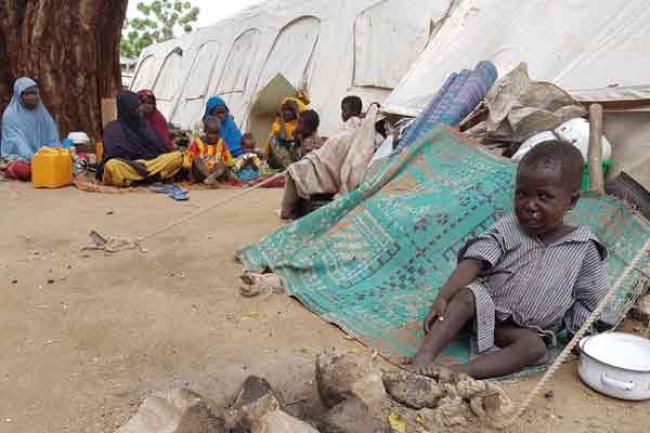Just Earth News 24 Feb 2017, 03:42 am Print

OCHA/Eve Sabbagh
“The opportunity we have at this gathering in Oslo [is for a partnership] between those who have been calling for enormous amounts of support [in the region and] to make sure that we can meet the needs of people as they go through terrible suffering, through no fault of their own,” UN Emergency Relief Coordinator Stephen O’Brien told UN News.
The UN aid chief’s comments come ahead of the Oslo Humanitarian Conference on Nigeria and the Lake Chad Region, which will be held on Fridayand which will be hosted by Norway, together with Nigeria, Germany and the UN. Aiming to draw attention to the crisis, which has been largely overlooked, the event seeks to mobilize greater international involvement and increased funding for humanitarian efforts to prevent the situation from deteriorating further.
According to the Office for the Coordination of Humanitarian Affairs (OCHA) – the UN’s relief wing – nearly 11 million people in the region, comprising Cameroon, Chad, Niger and Nigeria, need humanitarian assistance suffer from severe acute malnutrition, among them, about half a million are very young children – babies.
The appeal, amounting $1.5 billion will fund relief operations in the region, including, inter alia, providing life-saving food and nutrition support to 1.6 million people, livelihood support to 1.4 million, primary health care for 4.4 million, measles vaccinations for over one million children, education support for almost 300,000 girls and boys and safe water, improved sanitation and hygiene for 2.3 million displaced families and their host communities.
Of the total population in need (10.7 million), about 8.5 million are in north-eastern Nigeria which has seen years of violence as a result of Boko Haram militancy.
In particular noting the challenges in north-eastern Nigeria, O’Brien hailed the work of the humanitarian actors on the ground “they are staying, they are delivering – there have been some terrible and tragic losses of very brave and brilliant aid workers – and they continue working in some of the most atrocious and difficult conditions.”
Pointing out that the 2016 appeal was only about 50 per cent funded, he underlined that it meant that “we can only do about half of what we know needs to be done,” said O’Brien, also the UN Under-Secretary-General for Humanitarian Affairs and the head of OCHA.
Also, noting that the international community had to be a partner and show that it has enough capacity and enable relief programmes for those who need it the most, he said that the support would help ensure that “the people [in need] can get water and food; we can [avert] the terrible severe acute malnutrition, we can seek to avert famine, which is exacerbated by some of the climatic events, and indeed, climate change.”
- US official reacts to Elon Musk's remarks backing India's permanent UNSC seat
- Sri Lanka: 6.2 magnitude earthquake hits Island Nation, no casualty
- UN chief hails SE Asia for vital role ‘building bridges of understanding’
- India-Uzbekistan Synergy at the SCO
- Kazakhstan to host Astana International Forum in June to address key global challenges






